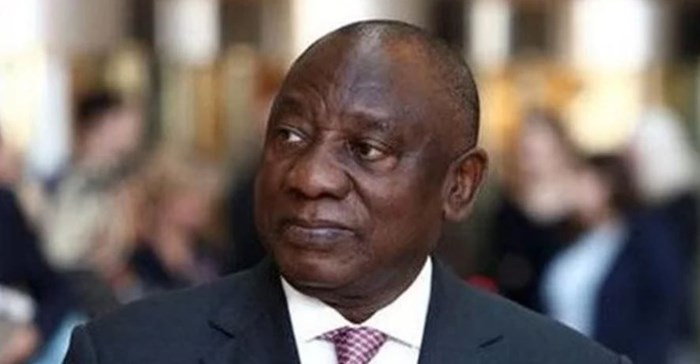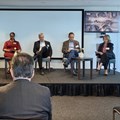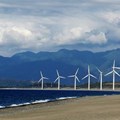President Cyril Ramaphosa delivered his 2024 State of the Nation Address at Cape Town City Hall - on Thursday, 8 February 2024 - marking the final Sona for the sixth administration.

Source: Reuters/2023. President Cyril Ramaphosa.
The president built on the achievements of the last three decades highlighting the turning point for South Africa's democracy when many cast their vote for the first time in 1994.
Respectfully, he paid tribute to former President Nelson Mandela, but sadly it did little to mitigate the challenges South Africa has faced: the global financial crisis of 2007 and 2008 which brought to an end a decade of strong growth and job creation; the more recent Russia Ukraine conflict which has contributed to rising prices of fuel, food and other commodities across the world and has - as a result - made life more difficult for all South Africans.
There is also the damage caused during the era of State Capture, the effects of which continue to be found across society, from the shortage of freight locomotives to crumbling public services, from poor performance of our past stations, to failed development projects in a number of places.
"We have been on a journey, striving together to achieve a new society, a national democratic society. We have cast off the tyranny of apartheid and a democratic state based on the will of the people," Ramaphosa said.
"We have established strong institutions to protect the fundamental freedoms and human rights of our people.
"We have transformed the lives of millions of South Africans, providing the necessities of life and creating opportunities that never existed for them before.”
His rhetoric proved insufficient, falling short of convincing the audience otherwise. Many attendees shook their heads in disbelief when he spoke of efforts made to weed out corruption linked to State Capture.
For a decade, individuals at the highest levels of the state conspired with private individuals to take over and repurpose state-owned enterprises, law enforcement agencies and other public institutions. In some cases, these activities were enabled by local and multinational companies.
"Billions of rands that were meant to meet the needs of ordinary South Africans were stolen. Confidence in our country was badly eroded; public institutions were severely weakened," Ramaphosa noted.
He repeated what was said at last year’s Sona: notable figures implicated in State Capture remain subject to ongoing investigations.
Story of generational change
It's worth noting that the members of the National Assembly and the National Council of Provinces did find resonance in Ramaphosa's metaphorical narrative concerning a girl named Tintswalo, born in 1994.
His depiction underscored the stark contrast between her life experiences and those of her parents, attributing this disparity to the government's efforts in fulfilling her basic needs:
“As beneficiary of the first policies of the democratic state she has had provision to free health care as pregnant women and children under the age of six have access to free healthcare; her formative years were spent in a house, alongside one of millions of houses built to shelter the poor, and she grew up in a household provided with basic water and electricity in a house, whereas her parents were likely to have lived without electricity before 1994."
But then again, the last few years alone have seen President Cyril Ramaphosa's administration promise more than twice to replace open latrines in schools. More than 3,300 of South Africa's 23,000 public schools still use pit latrines, according to government figures released in March last year, according to a report coming out of Africa News.
“Democracy’s child grew up in a society that was well apart from the South Africa of her grandparents, and great grandparents,” Ramaphosa said. “She receives funding; she grew up in a society governed by a constitution, a constitution rooted in equality, the rule of law, an affirmation of the inherent dignity of every citizen.”
Ramaphosa's forward vision
But rather than focus on poor service delivery; it could be argued that - throughout his tenure - Ramaphosa has been at the forefront of crisis management, steering the country through turbulent waters particularly during the 2021 July civil unrest in KZN and the Covid-19 pandemic - and always with a focus on recovery, rebuilding, and revitalisation.
This potentially lends credibility to these initiatives he focused on at #Sona2024 that signal change for the country. "As we look towards the next 30 years of freedom, we must choose the kind of country and indeed the kind of world we want to create for ourselves and our children," Ramaphosa noted.
- Looking ahead, Ramaphosa emphasised the imperative of addressing climate change, which poses an existential threat to South Africa and the world. In response, the government has established a Climate Change Response Fund to mobilise resources for resilience-building and adaptation efforts. Inspired by recurring natural disasters such as floods and wildfires, this initiative seeks to galvanise collaborative action across government and private sectors.
- The Just Energy Transition initiative was spotlighted as a cornerstone of economic renewal, aiming to stabilise the energy supply and modernise logistics systems. Through substantial investments in renewable energy, regulatory reforms, and infrastructure development, the government aims to unlock the economy's true potential and transition towards a sustainable future. Ramaphosa expressed confidence in overcoming energy crises and reducing dependency on fossil fuels, paving the way for a greener, more resilient economy.
- In addition to environmental sustainability, Ramaphosa underscored the importance of promoting economic inclusivity and empowerment. Initiatives to enhance black ownership in key industries and support small businesses are integral to fostering equitable growth and reducing socio-economic disparities. By providing funding and resources to entrepreneurs and facilitating worker ownership in companies, the government aims to create a more inclusive and participatory economy.
- Moreover, Ramaphosa reaffirmed South Africa's commitment to regional integration and intra-African trade, leveraging opportunities presented by the African Continental Free Trade Area.
On this note, Ramaphosa paid tribute once more to former President Nelson Mandela, reminding South Africa that the country has overcome many challenges and will overcome many challenges in the future. He quoted Mandela: “I have discovered the secret that after climbing a great hill, one only finds that there are many more hills to climb.”
However, Ramaphosa conveniently left out the prelude to that citation: - “I have walked that long road to freedom. I have tried not to falter; I have made missteps along the way.”











































